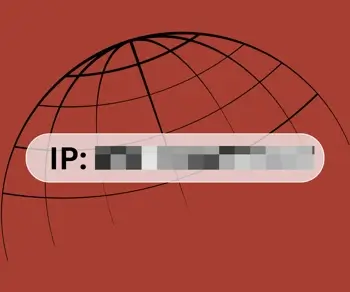Should I Hide My IP Address?
Many Internet users wonder whether it’s worth it to hide their IP address. In addition to identifying devices on networks and online, others can link your IP to your browsing sessions and online activity. With that in mind – should you hide your IP address? In general, yes; it doesn’t hurt to hide your IP online, even if it doesn’t keep you completely anonymous. In this article, we’ll cover five reasons to hide your IP address and explain the extent to which you can do so.
Reasons you should hide your IP address
Though hiding your IP address isn’t a perfect solution for anonymity, it helps offer better protection and security online. Consider these five reasons why you should consider it.
Keep your location private
In most cases, IP address geolocation can indicate your general physical location to sites and others online. If this makes you uncomfortable, hiding your IP address is a great decision. Your IP will appear to come from another location, keeping your true location private and secure.

Secure your connection
If you hide your IP via a virtual private network, or VPN, service – which is the best method – you’ll also be able to secure your connection by encrypting all your Internet traffic. This ensures that you stay safe online and avoid hackers, trackers, and other sorts of cybercriminals. When using public WiFi or other unsecured networks, hiding your IP with a VPN is one of the most reliable ways to stay safe.
Provide anonymity
In general, hiding your IP address allows you to remain more anonymous online. Though no tool makes you completely anonymous online – almost anyone can be found on the Internet, no matter how they mask their address – doing so limits the traceability of your IP beyond website files. You still would need to stay vigilant in using anonymous or private browsers and clearing your history if you want to remain anonymous on a shared device. But hiding your IP provides that anonymity online and helps protect sensitive information.
Get around blacklists or blocklists
Some users find themselves on an IP blacklist without committing any wrongdoing. There are a number of reasons why your IP may be wrongfully – or correctly – blacklisted, but if the owner of the blacklist denies your request to have it removed, you may need to hide or change your IP in order to have full abilities online and on servers.
Prevent tracing
If the amount of tracing you encounter in a single browsing session bothers you, hiding your IP address can help. Hiding your IP address won’t prevent things like ad tracking, which use device-specific methods to gives advertisers a window into your preferences and browsing habits. However, it keeps websites from monitoring your activity online, since it can't link your IP to you.
Limits of hidden IP addresses
Though there are many benefits to hiding your IP address, it isn’t a complete solution. You aren’t entirely anonymous when you’re online, no matter what you do. Furthermore, your other online activity – on social media sites, for example – can still create enough of a trail to indicate your IP address or identity. If you hide your IP, but then proceed to visit the same sites you did before hiding your IP, your digital footprint may give you away.
Whatever method you choose to hide your IP has its own limitations, too. Whether it be a paid or free VPN, a proxy server, the Tor browser, or another method, cost, reliability, and speed are all factors to consider. Again, there’s no perfect method; if you want to hide your IP, find the method that works best for you. To find a reliable method to hide your IP, read up on the seven ways that you can do it both for free and through paid services.
Can a hidden IP address be traced?
No; nobody can trace a hidden IP. Using a secure method, like a VPN or proxy, keeps your IP and traffic from being tracked or traced by any other third party. But again, be aware that this doesn’t completely eliminate your online activity. Your digital footprint can catch up to you if you continue the same Internet activity as before, and regardless, don’t attempt to access any unsafe or illegal sites. Even if your real IP address is hidden, you can be found in other ways.
How do I hide my IP address?
There are several ways to hide your IP address when browsing the Internet. You can choose what's best for you based on your budget and your online habits. The best way to hide your IP address, however, is by using a virtual private network (VPN) to keep your IP address private.
A virtual private network uses advanced encryption protocols and secure tunneling techniques to encapsulate all online data transfers and browsing activity. You connect to the VPN server, which sends your traffic to its final location as a sort of middleman. Then, the traffic appears to be coming from the server's IP address, not yours. It protects your IP and online identity.
You can also mask your IP address with a proxy server, which is similar to a virtual private network. They also act as a gateway for web traffic, changing a user's IP address before traffic reaches its final destination. Proxies are usually cheaper than virtual private networks, but they don't provide the same levels of anonymity.
Private web browsers, like Tor, are another option. These browsers hide users' IP address and browsing history online, which allows you to search in private without worrying about being tracked. Whichever method you choose, hiding your IP online is a smart choice and a good way to improve your privacy online.